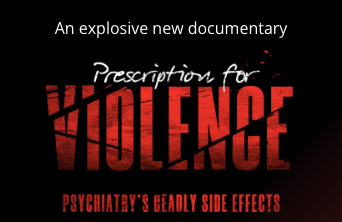A landmark reform shuts down deceptive drug ads that fueled overprescribing, misinformation and billions in profits for Big Pharma.
ruthful and non-misleading Direct-to-Customer (DTC) advertising is protected under the First Amendment and has documented evidence of advancing patient awareness and engagement,” said Alex Schriver, senior vice president at Pharmaceutical Research and Manufacturers of America (PhRMA).
Because he said it in a statement, we have no way of knowing if his fingers were crossed or if he was stifling a smirk.
Schriver made the statement in response to a historic raft of reforms coming down from the FDA and Department of Health & Human Services (HHS) requiring pharmaceutical companies to include full safety warnings in DTC ads—with an emphasis on the word “full.” The reforms close a 1997 “adequate provision” loophole that allowed companies to minimize risk disclosures, referring the viewer interested in learning all the risks to a tiny print website address or phone number, while lulling them with images of delighted people doing joyous things.
DTC ads work just fine the way they are now—for drug companies.
PhRMA is a trade and lobby group that has worked tirelessly for the good of Big Pharma since 1958—lobbying against lower drug prices, price limits and price negotiations, and levying lawsuits while donating vast sums of dark money to groups that oppose reform. It wants no changes in the status quo, which is why it insists that DTC ads are “truthful and non-misleading.”
The evidence, of course, tells a different story.
Doctors themselves admit that when patients request drugs they’ve seen advertised, the doctor often feels pressured to prescribe—even when it isn’t medically appropriate. In fact, studies show physicians are 17 times more likely to write a prescription if a patient specifically asks for the drug, sometimes just to protect their own satisfaction scores. The results are predictable: unnecessary prescriptions for powerful, dangerous psychotropics like Adderall, along with an overall surge in inappropriate drug use.
A 2021 review likewise confirmed what doctors and patients already knew: DTC ads result in more prescription requests, more prescriptions written and more inappropriate prescribing. Even a brief exposure to a statin commercial made low-risk patients 16–20 percent more likely to be diagnosed with high cholesterol, and 16–22 percent more likely to walk away with a prescription.
And the ads themselves? A 2024 review found that nearly two-thirds were of poor scientific quality. Almost half were outright misleading, and more than a third were judged potentially harmful. Content analyses show why: Only about a quarter even bother to explain the disease or its mechanisms. A tiny fraction mention risk factors. But almost all—94 percent—lean on emotional manipulation (that syrupy music with the happy slow-motion people).
Worst of all, the ads drive patients toward pills at the expense of effective—and far safer—lifestyle changes.
So, yes, DTC ads work just fine the way they are now—for drug companies. They work so well, in fact, that prescription drug use among Americans increased from 39 percent (1988–1994) to 49.9 percent (2017–2020) in the last 30 years.
That means if you’re a six-year-old boy today, you can expect to spend 47.1 percent of the rest of your life on prescription drugs, while if you’re a baby girl, you can expect to spend 58.2 percent of your life popping pills.
Small wonder, then, that “drug makers spent a whopping $5.15 billion on national TV ads in 2024,” CNN reported. “They continued to open their wallets in 2025, spending just shy of $3 billion on national TV ads during the first half of the year, a 12.2 percent year-on-year increase.”
It’s to the point now where Big Pharma is currently fourth in terms of total TV ad spending by industry, accounting for 11.1 percent of the market. If you’re binge-watching “The Great British Baking Show” or Netflix’s “Wednesday” right now, chances are you’ll see a drug commercial or six within the next hour or two.
Those of you who are old enough: Remember all those TV ads for prescription drugs before 1997?
You would be excused if you can’t. That’s because there were virtually none. In those days, pharmaceutical ads had to give full disclosure and report all risks. Some of those lists of side effects and dangers run to pages of small print. It would just take too long to read them out loud (the commercials would be the length of the TV shows they sponsored).
Thousands of sponsors will receive warning letters, while dozens of companies will be hit with actions for false and misleading promotion.
That all changed in 1997, with the FDA’s introduction of the “adequate provision” loophole. “Adequate provision” is an important-sounding term that describes permitting pharmaceutical advertisements to hide safety information by placing it in another format or location. As long as they recite a vague “major-risk statement” and then point viewers to a website, toll-free number or print insert for more complete information on how their drug can make you sicker, more miserable or suicidal, we’re cool.
The result: a 24/7 tsunami of pharmaceutical lies inundating America’s airwaves and assaulting our senses.
As HHS indicated in announcing the reform: “This loophole—which denies patients vital safety information required for them to make an informed decision—has had a clear negative impact on public health.”
The reform, HHS goes on to say, “simply returns to the status quo policy pre-1997. It requires the presentation of factual and uncontroversial statements which are already legally required to be communicated in drug advertising; goes directly to the core government interests of protecting the public from deception and protecting public health—as supported by voluminous evidence of public harm under the current system; and does not unduly burden advertisers, by preserving their right to engage in commercial speech under the standards that existed prior to 1997.”
But this time, with teeth.
The FDA is putting the drug industry on notice: Remove deceptive ads or face enforcement. Thousands of sponsors will receive warning letters, while dozens of companies will be hit with actions for false and misleading promotion. “No longer asleep at the wheel,” the FDA will wield its authority aggressively to crack down on misbranding.
This is welcome news. The FDA? Doing its job?? Hooray! And they’ve already begun. On the day of the announcement, the FDA issued approximately 100 cease-and-desist letters and thousands of warning letters directly to pharmaceutical companies.
Continue reading







